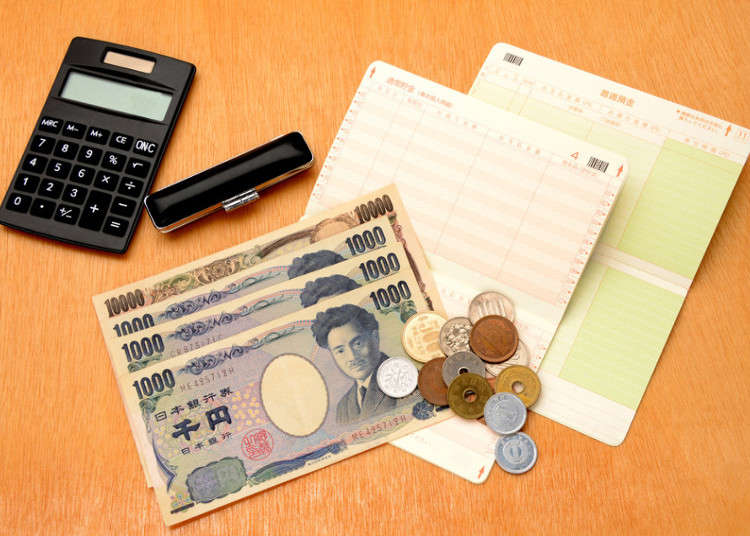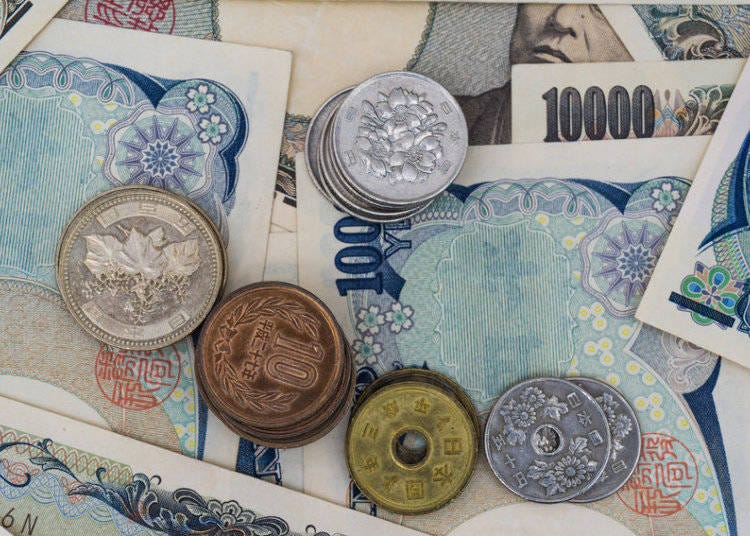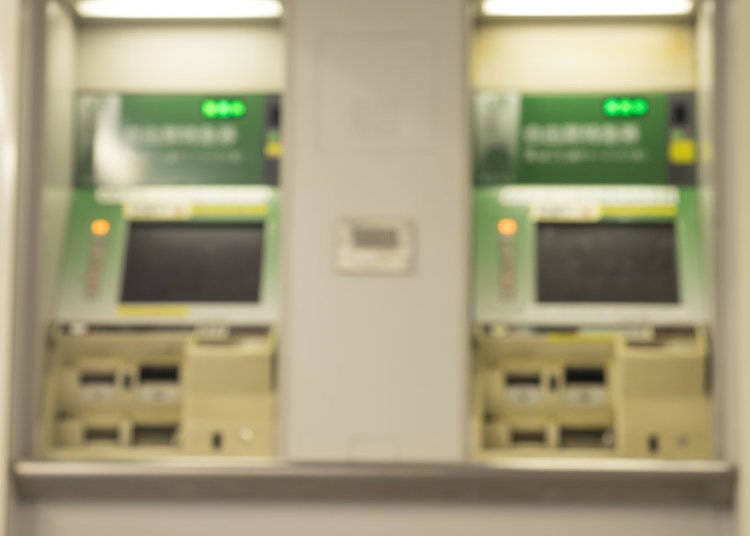
People living in Japan have a variety of options when choosing a bank. Similar to other countries, you can choose from large domestic banks, small regional banks, international banks and others.
Banking Options

Several domestic banking institutions are available for your needs in money management. Most banks offer similar services including deposits and withdraws with bank book and cash cards, transferring funds, foreign currency exchange, and other services. Normal banking hours for banks are weekdays from 9:00 a.m.to 3:00 p.m.
Large domestic banking companies include:
• Bank of Tokyo - Mitsubishi UFJ
• Mizuho Bank
• Sumitomo Mitsui Banking
• Resona Bank
• Shinsei Bank
• Japan Postal Bank
Some banks are favorable to international residents with convenient services that make the banking process simpler. Here are is a brief description of such banks:
Bank of Tokyo - Mitsubishi UFJ
Obtaining a credit card can be a tough task for international residents, so as an alternative, you can obtain a Mitsubishi UFJ Visa debit card. MUFJ only requires that you've been a resident in Japan for at least 6 months. Upon applying you will receive your debit card in the mail after 2 weeks. UFJ will also give you a bank book and a cash card to use at ATM’s (the debit card cannot be used at the ATM).
Shinsei Bank
With Shinsei Bank you can open an account without ever having to visit a bank building. You can apply online, Shinsei will send you a packet to fill out, send it back, and then they’ll send you an ATM cash card. They also offer their services in English, something many banks in Japan still lack. Shinsei Bank also offers lines of credit such as Visa cards, mortgages, and auto loans. Their online banking is also in English.
Japan Postal Bank
JP Post bank is a good option, allowing people with shorter stays in Japan to open an account, but with some restrictions for the first six months, such as not being able to wire transfer between banks. This simple bank account will allow depositing and withdrawing to your account. After six months the restrictions are lifted.
Opening a Bank Account

Getting a bank account is one of the first tasks when living in Japan, as an account is required for paying for many services and utilities such as cell phones, and for setting up automatic payments. The banks you can apply for depend on your visa and the length of your stay. Some banks may not allow you to create an account if you have a visa for less than one year. Banks such as Shinsei and Japan Postal Bank are known to be accommodating to people with shorter stays. Work or Spousal visas will allow you more options for bank accounts.
Banks require different forms of documentation in order to open an account:
- Residence Card
- Passport
- A registered Inkan/Hanko (Name Seal)
- Residence Certificate
- Money to deposit
Depending on the bank you go to, their English services may be limited, so if you're not confident in your Japanese language capabilities, it may be good to go with a friend that can assist you with any questions that might arise.
Banking Basics

• Bank ATMs
Cash cards can be used at many convenience stores and other locations but often with an ATM fee. Bank ATMs from the same bank will not charge you usage fees, however some close at night depending on the bank, while some others stay open 24 hours. Many banks have deals with certain convenience stores to waive the ATM usage fee. You can deposit, withdraw, view your balance, pay your bills, and get access to other services from bank ATMs.
• Bank Books
You will receive a bank book after creating a bank account. ATMs have a slot to insert your bank books which will automatically update the information in your bank book after a deposit or withdraw.
*Prices and options mentioned are subject to change.
*Unless stated otherwise, all prices include tax.
Popular Tours & Activitiess
Recommended places for you
-
Appealing

Rukku and Uohei
Izakaya
Sapporo / Chitose
-

Jukuseiniku-to Namamottsuarera Nikubaru Italian Nikutaria Sannomiya
Izakaya
Kobe, Sannomiya, Kitano
-

Kanzenkoshitsuyakinikutabehodai Gyugyu Paradise Sannomiya
Yakiniku
Kobe, Sannomiya, Kitano
-

Kambei Sannomiyahonten
Yakiniku
Kobe, Sannomiya, Kitano
-
Goods

Yoshida Gennojo-Roho Kyoto Buddhist Altars
Gift Shops
Nijo Castle, Kyoto Imperial Palace
-

ISHIDAYA Hanare
Yakiniku
Kobe, Sannomiya, Kitano
-

Top 3 OSHI MAPs for the Best Matcha and Sweets in Tokyo
by: Guest Contributor
-

To the Holy Land of Kawaii! Odakyu Tama Center Station Is Becoming a Dreamy Sanrio Wonderland
by: Guest Contributor
-
Ad

Japan’s Land of Yokai Monsters and Spooky Stories! A Deep Journey to Mysterious San’in (Tottori & Shimane) for Seasoned Travelers
-

Farewell, Heavy Suitcases! Keisei Ueno’s New Service Makes Your Last Day in Tokyo Totally Hands-Free
by: Guest Contributor
-

A New Tokyo Landmark Is Coming in 2026, and It's Built for Modern Travelers
by: Guest Contributor
-
Ad

5 Recommended Wagyu Yakiniku Restaurants in Tokyo: Signature Dishes, Premium Beef, and Secret Sauces
-

Akita Bucket List: 20 Best Things to Do in Akita Prefecture For Tourists (Attractions, Local Foods & Activities)
-
Ad

Let ‘karaksa hotel premier Tokyo Ginza’ Be Your Passport to Stylish Ginza Sightseeing!
-

Tokyo Adventure Hotel Bases: Ultra-Convenient Stays Near Shinjuku, Ikebukuro, and More
-

Kobe in Spring: What to Expect in March, April, and May + What to Wear
by: Nemi Lin
-

Tokyo Area|Tokyo Station Area Map & Sightseeing Information
-

Oga Aquarium GAO Guide: Fish, Polar Bears and...Godzilla?
- #best sushi japan
- #what to do in odaiba
- #what to bring to japan
- #new years in tokyo
- #best ramen japan
- #what to buy in ameyoko
- #japanese nail trends
- #things to do japan
- #onsen tattoo friendly tokyo
- #daiso
- #best coffee japan
- #best japanese soft drinks
- #best yakiniku japan
- #japanese fashion culture
- #japanese convenience store snacks












